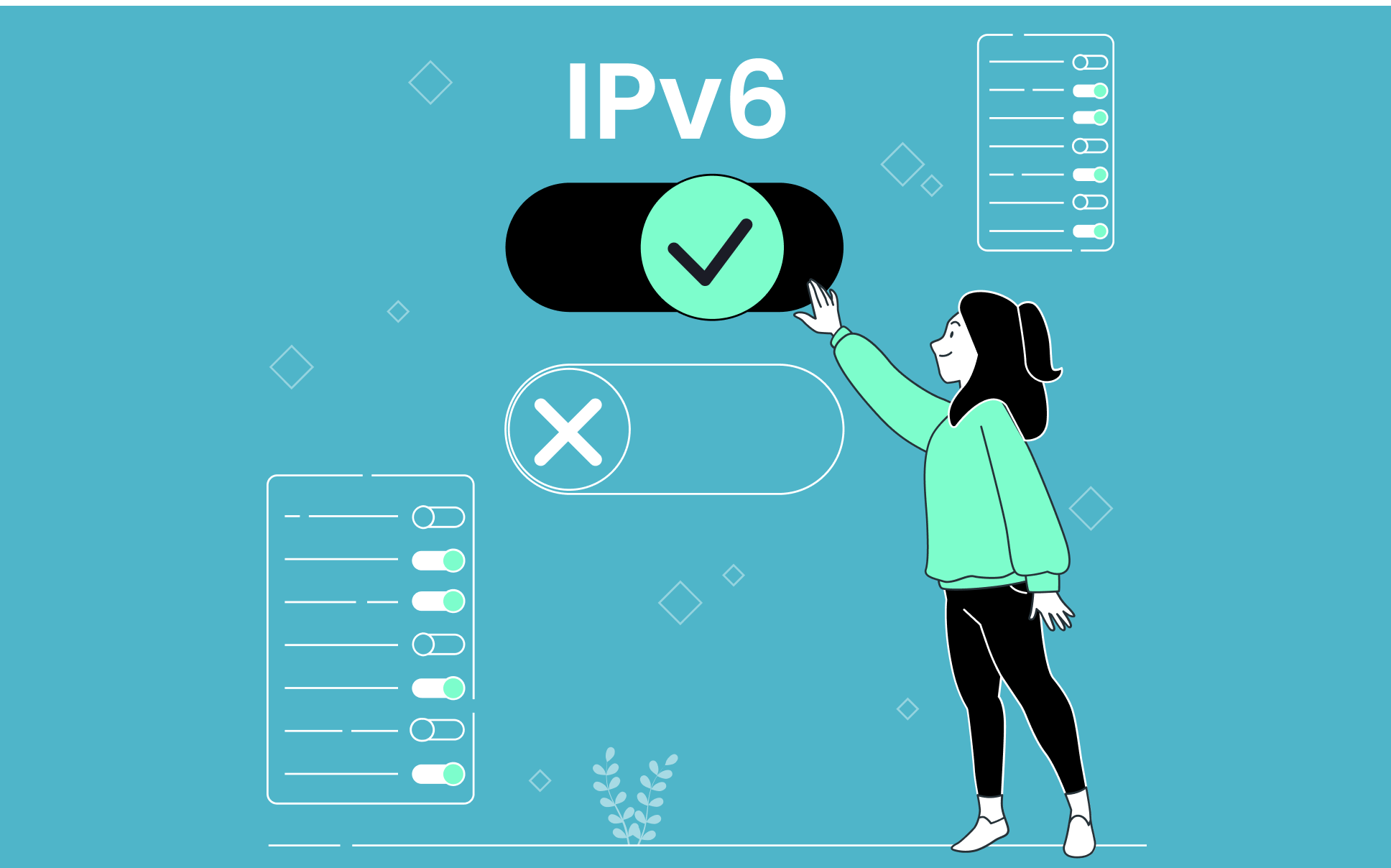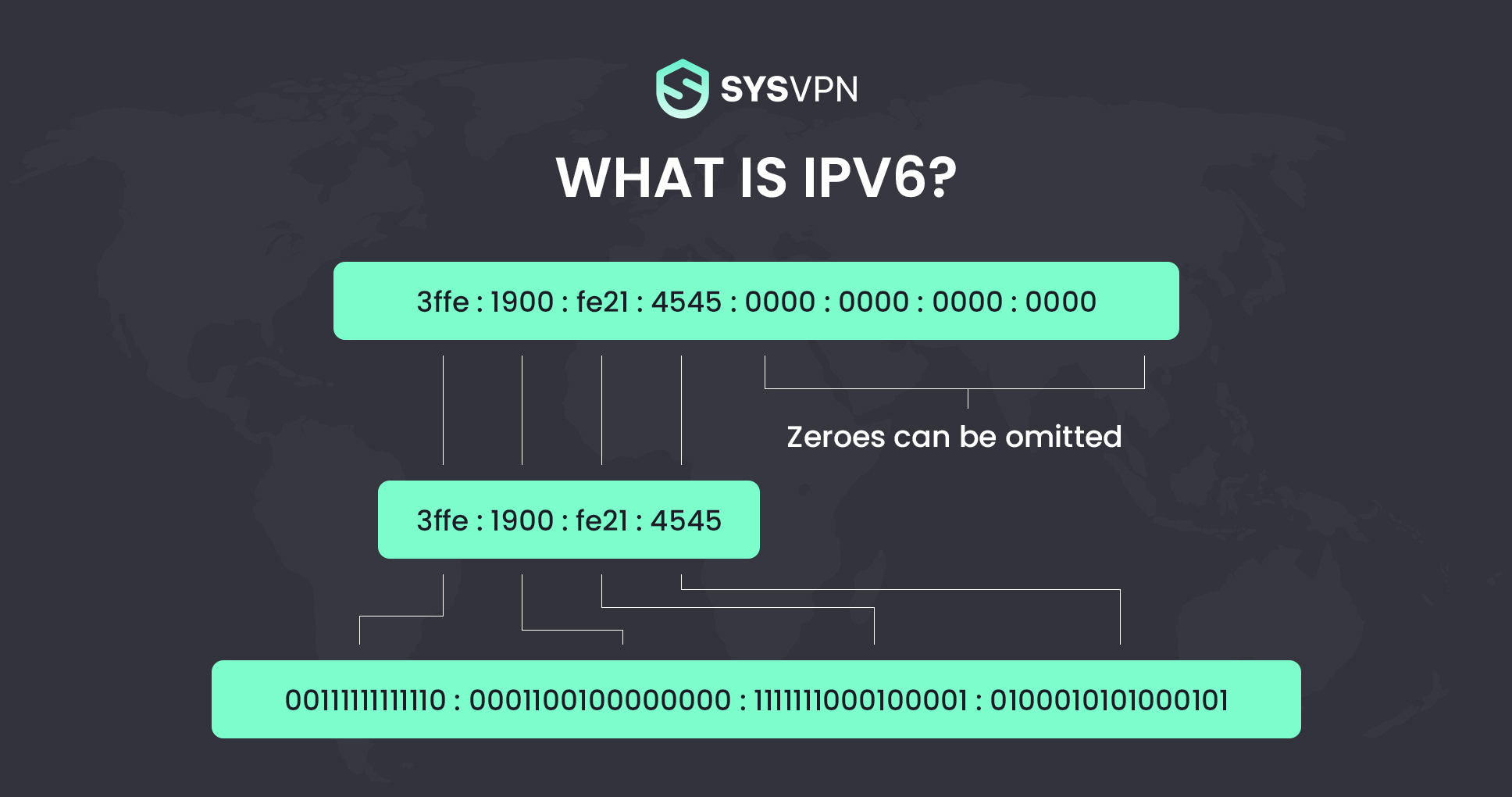Disable IPv6 to boost VPN security
Cars have VINs. Humans have Social Security numbers. And our Internet-connected devices have unique identifiers, too — Internet Protocol addresses, commonly known as IP addresses. An IP address is a unique string of numbers assigned to an Internet-connected device. Your computer network uses the IP address to communicate with other computers, websites, and all parts of cyberspace.

It may not feel like it, but the Internet has been on the verge of seizing up for years. The Internet is suffering a severe scarcity of IPv4 addresses, analogous to a city running out of land for new construction. And, much as cities embrace vertical construction methods to provide additional room, technicians have created a way out - IPv6. So, what does IPv6 mean? Is IPv6 in fact superior to IPv4? Read on to find out!
What is IPv6?
IPv6 (Internet Protocol version 6) is the latest revision to the Internet Protocol (IP) and the successor to IPv4. It functions similarly to IPv4 in that it provides the unique IP addresses necessary for Internet-enabled devices to communicate.

IPv4's creators had no clue how big the internet would go when they designed it. Due to the 32-bit addressing used by this protocol, it is only possible to assign up to 4.3 billion unique addresses. In the 1980s, it seemed limitless, but now, we're getting dangerously close to hitting that wall. IPv6 was thankfully developed in response. This new addressing system employs a 128-bit standard with the capacity for 340 billion billion billion billion addresses - more than adequate to meet the Internet's growth for at least the next several decades.
Which internet protocol does SysVPN use?
You may be wondering how IPv6 relates to VPNs. Unfortunately, several major VPN companies, including SysVPN, do not truly support IPv6. We only work over the current-generation protocol, IPv4.
If you connect to the VPN using an IPv4 address, everything should go off without a hitch; your data will be safeguarded as it goes over via the encrypted tunnel with IPv4 protocol.
On the other hand, if you were to try utilizing IPv6 over an IPv4-only VPN, it would presumably reroute your IPv6 traffic via the default gateway and ISP. Your data would leave the protected VPN connection.
Currently, the vast majority of VPN apps are IPv4-only. Currently, our solution includes disabling the majority of IPv6 traffic to protect the security of user traffic. Nevertheless, IPv6 functionality is in SysVPN's roadmap.
Is IPv6 traffic leaking outside of the VPN tunnel?
The majority of networks are incompatible with IPv6. Follow these steps to ensure IPv6 traffic is not flowing outside the VPN tunnel.
First of all, let’s check if your network supports IPv6 at all.
- Go to https://ip6.nl/.
- Your connection is shown in the upper-left corner of the website. Verify your IPv6 results.
- If you see the status No IPv6 connectivity 🙁, you’re safe now! You have no IPv6 traffic leaks.
- If your network supports IPv6, then consider disabling it in your operating system.
